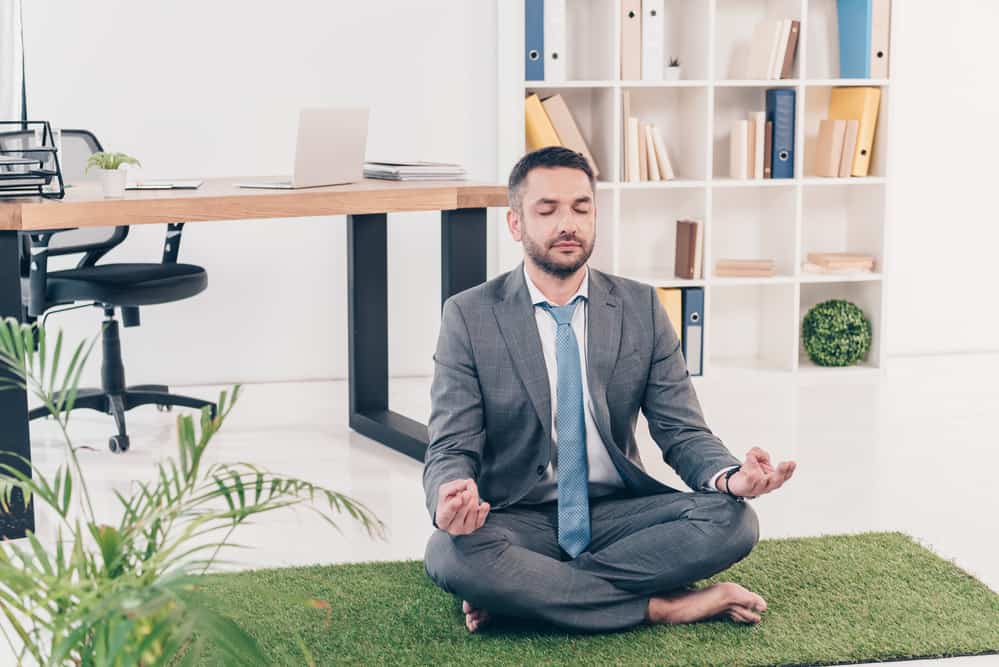
You clock in, clock out, and in between, you’re swamped with tasks and events that demand your attention. But when was the last time you penciled yourself into your own schedule?
You’re not a machine programmed to churn out productivity 24/7. The clock ticks not to haunt you, but to remind you: there’s time to pause. Far from a luxury, personal time is your life’s essential maintenance. This isn’t about self-care rituals you’ve heard a thousand times. It’s about reclaiming your time to fuel your ambitions, sharpen your focus, and be unapologetically you.
Taking time for yourself is key to mental well-being and overall productivity. It serves as a mental reset, reducing stress and preventing burnout. By allocating moments for self-reflection and relaxation, you enhance your emotional intelligence, making it easier to handle interpersonal relationships and work challenges. This practice also fosters creativity and problem-solving skills. Prioritizing self-time is essentially a necessity for a balanced life.
As we further explore the subject together, we’ll go more in-depth into the importance of taking time for yourself, what it means to create a self-care routine, and how to tailor it to fit your unique needs and preferences. Now, what exactly does time for yourself look like?
Key Takeaways
- Self-Care is Essential: Prioritizing your well-being is not a luxury but a necessity for mental, emotional, and physical health.
- Find Your Joy: Engage in activities that resonate with you for relaxation and fulfillment. Could be reading, walking, or a bubble bath.
- Set Boundaries: Learning to say no and setting personal boundaries are crucial for effective self-care.
- Boosts Mental Health: Regular “me time” reduces stress and anxiety, enhancing your overall mental state.
- Promotes Personal Growth: Time alone allows for introspection, leading to better self-awareness and decision-making skills.
What Does It Mean to Take Time for Yourself?
The idea of personal time often gets lost in the fast-paced chaos of modern life. Still, it’s not just a phrase; it’s a vital part of your health. As we go on, we’ll talk about different parts of taking time for yourself, such as what self-care really means and how you can make it a normal part of your life.
Let’s digest it’s meaning bit by bit.
Understanding the concept of self-care
Self-care means prioritizing your own well-being, both physically and mentally. It’s about recognizing your needs and taking intentional actions to nourish your body, mind, and soul. It’s not selfish; it’s essential. It’s an investment in yourself. The returns? A more balanced, productive, and content you.
Identifying activities that bring joy and relaxation
What brings a smile to your face and a sense of calm to your spirit? Activities during personal time can vary greatly from person to person, but the key is to find what truly resonates with you. It could be anything from reading a book, taking a bubble bath, or going for a walk in nature. The goal is to engage in activities that allow you to unwind, recharge, and experience a sense of fulfillment.
Setting boundaries and learning to say no
Do you feel guilty for prioritizing yourself or saying no to others? Learning to set boundaries is a crucial aspect of taking time for yourself. It means valuing your own needs and understanding that it’s okay to put yourself first sometimes. By saying no to excessive demands and embracing your individuality, you’re creating the space needed to focus on self-care and personal growth.
Why is it important to take time for yourself?
Knowing the “why” behind personal time can make all the difference. It’s not just about being nice to yourself; it’s about being healthy in every way.
Now, we’ll talk about the real benefits and important reasons for taking time for yourself, like how it helps your mental health and how it helps you grow as a person.

Boosts Mental Health by Reducing Stress and Anxiety
Taking time for oneself is a critical self-care practice. It acts as a buffer against the relentless pace of daily obligations. When you allocate time to decompress, you engage in an essential act of emotional health maintenance.
This practice helps in dismantling stress and anxiety, which are often the byproducts of a demanding routine.
Benefits of taking time for mental health include:
-
Reduced feelings of stress and anxiety.
-
Improved mood and emotional well-being.
-
Greater sense of inner peace and calmness.
The act of stepping back allows the mind to slow down, offering time to think and process emotions. It’s a chance to detach from the pressures of life, leading to a calmer, more centered existence.
Engaging in activities that relax the mind, whether it’s a solitary walk or a quiet hour with a book, can significantly reduce the weight of mental burdens.
Increases Self-Awareness for Personal Growth
Solitude is a fertile ground for self-discovery. When you spend time alone, you provide yourself with an invaluable opportunity to reflect on your life’s path, evaluate your choices, and contemplate your future.
This time alone is where self-awareness blooms, allowing for a deeper understanding of your desires, fears, and values.
Key points for increasing self-awareness:
-
A clearer understanding of personal values and beliefs.
-
Enhanced awareness of one’s strengths and areas for improvement.
-
Improved ability to make decisions that align with personal goals.
The need to take time for such reflection is pivotal in personal growth. It’s in these quiet moments that you can align your actions with your values, recognize your unique talents, and chart a course for future growth.
This process is integral to evolving as an individual and living a life that truly reflects who you are.
Enhances Creativity Through Uninterrupted Focus
Creativity thrives in solitude. When you make time for uninterrupted focus, your mind can wander, explore, and connect ideas in novel ways.
This practice is about allowing the mind to engage in creative problem-solving, to think outside the box, and to develop innovative solutions.
Benefits of solitude in creativity:
-
Increased ability to generate original ideas.
-
Enhanced problem-solving skills.
-
Greater focus and concentration on creative tasks.
Ways to take time for creativity include engaging in activities that stimulate the mind, like writing, drawing, or simply daydreaming. In addition to being pleasurable, these acts of creativity are fundamental to personal and professional development.
By dedicating time to creative endeavors, you’re not only nurturing your artistic side but also equipping yourself with skills that are valuable in all areas of life.
Fosters Stronger Relationships by Maintaining Boundaries
Ironically, spending time alone can strengthen your relationships with others. By taking some time for yourself, you establish healthy boundaries, which are essential for any thriving relationship.
This practice allows you to recharge and return to your interactions with others more present and engaged.
Key aspects of fostering relationships through self-time:
-
Improved ability to be present and attentive in relationships.
-
Enhanced understanding and appreciation of others’ perspectives.
-
Increased patience and empathy in dealing with relationship challenges.
Time alone gives you space to process your thoughts and emotions, so when you are with others, you are fully there. It’s about respecting your needs and the needs of those around you, creating a healthy interdependence that is vital for lasting, meaningful connections.
Promotes Physical Well-being with Rest and Rejuvenation

Taking time for yourself means prioritizing your physical health and well-being.
Without taking time to care for your body, you risk fatigue, illness, and diminished overall health.
Key points in promoting physical well-being:
-
Improved physical health through adequate rest and recovery.
-
Reduced risk of chronic diseases associated with stress and overexertion.
-
Enhanced energy levels and vitality.
Spending more time on activities like sleep, leisurely walks, or time to exercise can have profound effects on your physical health. This practice nurtures a state of physical wellness that allows you to enjoy life to its fullest.
Taking time for yourself can help restore balance to your body, ensuring you have the energy and health to pursue your passions and responsibilities.
Sharpens Decision-making Skills by Allowing Reflection
The need to take time for reflection is crucial in honing your decision-making skills. A constant barrage of stimuli and demands can cloud judgment and lead to hasty, ill-considered decisions.
Taking time alone offers a pause, a moment to reflect on various aspects of life and work, leading to more thoughtful and effective decision-making.
Bullets for sharpening decision-making:
-
Clearer and more rational thought processes.
-
Better assessment of risks and benefits in decision-making.
-
Improved ability to focus on long-term goals and consequences.
Allocating time to be alone with your thoughts enables you to weigh options without external pressure. It’s a process of examining different perspectives, considering potential outcomes, and aligning decisions with your values and goals.
This reflective practice is essential in a world where decisions often have far-reaching implications on both personal and professional fronts.
Builds Resilience to Overcome Life’s Challenges
Resilience, the ability to bounce back from adversity, is bolstered when you make time for self-care. Life’s challenges are inevitable, but how you respond to them is within your control.
Taking time for yourself fosters emotional strength and adaptability, key components of resilience.
Points for building resilience:
-
Increased emotional strength to handle life’s ups and downs.
-
Enhanced ability to adapt to change and uncertainty.
-
Development of a more positive outlook on challenges.
The time that’s spent in solitude or engaging in activities that nurture your spirit contributes to a stronger sense of self. It’s in these moments that you can process emotions, gather your thoughts, and approach life’s challenges with a renewed perspective.
Far more than simply avoiding hardship, the essence of resilience lies in developing the inner resources to navigate through them effectively.
Prevents Burnout by Balancing Work and Leisure
Given a culture that often glorifies overwork, the importance of balancing work with leisure cannot be overstated. Without taking time to step away from work-related responsibilities, burnout becomes a real risk.
Making time for leisure activities and rest is key in maintaining your enthusiasm and productivity in your professional life.
Key aspects of preventing burnout:
-
Maintained enthusiasm and motivation in professional endeavors.
-
Reduced feelings of stress and exhaustion associated with overwork.
-
Enhanced productivity and creativity at work.
Finding time to engage in activities unrelated to work allows your mind and body to recover from the strains of your professional life. This balance helps in ensuring that you are able to approach your work with a fresh perspective and renewed energy.
Taking time for yourself in this way is a strategic approach to sustaining a long and fulfilling career.
Cultivates Gratitude through Mindful Reflection
Cultivating gratitude is a simple yet profound aspect of self-care. In the rush of everyday life, it’s easy to overlook the value of what you have. Taking time for yourself can help you process your thoughts and feelings, leading to a deeper appreciation for the various aspects of your life.
Key points in cultivating gratitude:
-
Heightened appreciation for life’s small and big blessings.
-
Improved emotional wellbeing through positive thinking.
-
Enhanced ability to find joy in everyday experiences.
Self-care has become a necessity, not a luxury, in maintaining emotional health. In moments of solitude, you have the opportunity to reflect on your achievements, relationships, and experiences, fostering a sense of thankfulness. This practice of mindful reflection can transform your outlook, making you more aware of the good in your life, and less focused on what you don’t have. Gratitude, in this sense, becomes an integral part of your wellbeing.
Encourages Better Time Management by Prioritizing Self-Care
Effective time management often means prioritizing tasks that are crucial for your wellbeing. For many, taking time for self-care may feel impossible due to a busy schedule.
However, it’s important to find ways to make time for these activities as they are essential for maintaining a healthy balance.
Bullets for better time management:
-
Improved efficiency in handling daily tasks.
-
Reduced feelings of being overwhelmed.
-
Enhanced ability to prioritize important tasks.
Taking time for self-care requires intentional planning. It might mean waking up earlier than the rest of the household to enjoy a quiet cup of coffee, or scheduling a regular time with family that’s non-negotiable.
This process of prioritizing self-care ensures that you don’t feel like you’re constantly running on empty. It’s about recognizing that to take better care of your responsibilities, you first need to take care of yourself.
Improves Your Ability to Listen by Reducing Mental Noise
Especially in a world filled with constant noise, finding time to be alone is key to improving your listening skills. This practice is about fully comprehending and empathizing with others. Solitude allows you to quiet your mental chatter, making space to truly listen.
Key aspects of improved listening:
-
Greater attentiveness to others’ words and emotions.
-
Enhanced ability to understand and empathize.
-
Improved communication in personal and professional relationships.
Taking time alone to reflect helps you process your own thoughts and feelings, making you more receptive to others.
In this quiet space, you can focus on understanding different perspectives without the distraction of your own biases or preoccupations. This skill is invaluable in building strong relationships and navigating complex social situations.
Allows You to Explore and Discover Untapped Skills
Allocating free time to explore new interests can lead to the discovery of untapped skills and passions. Throughout the hustle of daily commitments, many people don’t find what makes them truly excited or fulfilled. Setting aside time for exploration can change that.
Bullets for discovering new skills:
-
Opportunity to explore new hobbies and interests.
-
Discovery of hidden talents and abilities.
-
Increased sense of fulfillment and purpose.
Self-care you need often involves exploring aspects of yourself that remain undiscovered in your routine life. Whether it’s picking up a new hobby, learning a new language, or simply trying out a new recipe, these activities offer a chance to learn more about your capabilities and interests.
This exploration not only adds variety to your life but can also lead to a deeper understanding of yourself and what brings you joy.
Cultivates Self-Control by Removing External Influences
Self-control is often challenged by the hustle of daily life and the demands of others. Solitude provides a unique space where external influences are minimized, allowing for a more focused approach to what you want to accomplish. This environment is conducive to practicing self-discipline and improving decision-making skills.
Key aspects of cultivating self-control:
-
Enhanced ability to focus on personal goals without distractions.
-
Improved discipline in maintaining healthy habits.
-
Increased capacity to resist external pressures and temptations.
With the absence of external stimuli, you get a clearer perspective on your priorities and how you wish to reach your goals. It could be adhering to an exercise routine, focusing on a personal project, or simply dedicating time to de-stress.
Solitude helps in sharpening your ability to sustain these endeavors, making you more effective in managing your time and resources. This practice is particularly beneficial in establishing long-term habits that contribute to your overall well-being.
Provides Space to Align Your Actions with Your Values
In the midst of daily tasks and societal expectations, aligning your actions with your personal values can be challenging. Time alone offers a much-needed pause, a space to reflect on your beliefs and ensure that your actions mirror these values.
Key points for aligning actions with values:
-
Clarity in understanding personal beliefs and values.
-
Enhanced ability to make choices that reflect these values.
-
Improved personal integrity and authenticity.
Spending time in solitude allows you to evaluate your life’s direction and the choices you make. Whether it’s in your professional endeavors, relationships, or personal growth, this alignment is crucial for a fulfilling life. It helps you stay true to yourself and ensures that your actions are not merely reactions to external pressures but are reflective of what you truly believe and value.
Strategies and Tips for Taking Time for Yourself
Now that you know how important personal time is, the next step is to make a self-care plan that fits your wants and way of life. This isn’t something that can be done in one way. In the next couple parts, we’ll help you make the most of your personal time and put together a self-care routine that’s as unique as you are by giving you actionable tips and ideas.

Schedule regular “me time” in your calendar
If it’s not scheduled, it’s not real. Time for yourself is as important as any business meeting. Block out regular slots in your calendar dedicated solely to “me time.” This ensures you prioritize yourself amidst a busy schedule.
- Benefits: Improved mental health, work-life balance, personal growth.
- How to Start: Identify free slots in your calendar; label them as “me time.”
- Tools: Digital calendar apps, planners, reminders.
Create a self-care routine
Self-care is not selfish; it’s essential. A well-crafted self-care routine can be your sanctuary. Whether it’s skincare, reading, or exercise, having a set routine helps you unwind and recharge effectively.
- Benefits: Reduced stress, better physical health, emotional well-being.
- How to Start: List activities that make you feel good; incorporate them into a daily or weekly routine.
- Tools: Self-care products, books, fitness equipment.
Surround yourself with positive influences
Your vibe attracts your tribe. The people around you can either drain or energize you. Make a conscious effort to surround yourself with positive influences who uplift you and contribute to your well-being.
- Benefits: Emotional support, increased positivity, better decision-making.
- How to Start: Evaluate your social circle; nurture relationships that add value.
- Tools: Social media filters, networking events, self-assessment tools.
Be kind to yourself and embrace self-compassion
You can’t pour from an empty cup. Being hard on yourself serves no one. Embrace self-compassion by acknowledging your efforts and forgiving your mistakes. This fosters a healthier relationship with yourself.
- Benefits: Improved self-esteem, resilience, emotional intelligence.
- How to Start: Practice mindfulness; celebrate small wins; forgive yourself for setbacks.
- Tools: Mindfulness apps, journals, positive affirmations.
Replace half an hour of screen time with a nature walk.
Swap pixels for petals. The digital world can be overwhelming. Replacing just 30 minutes of screen time with a walk in nature can significantly improve your mental well-being. Nature has a calming effect, and the physical activity releases endorphins. Plus, it’s a break for your eyes from the constant glare of screens.
- Benefits: Improved mental health, physical exercise, reduced eye strain.
- How to Start: Identify a nearby park or trail; schedule a regular time slot.
- Tools: Comfortable walking shoes, a water bottle, and perhaps a nature identification app.
Set a silent alarm every three hours for three deep breaths.
Inhale the future, exhale the past. A silent alarm can serve as a gentle reminder to pause and take three deep breaths. This simple act can reduce stress, improve focus, and refresh your mind. It’s a quick way to center yourself amid a busy day.
- Benefits: Reduced stress, increased focus, mental refreshment.
- How to Start: Set recurring silent alarms on your phone or smartwatch.
- Tools: Any device with alarm functionality; mindfulness apps for guided breathing.
Music is the food of the soul. Social media can be a double-edged sword. It connects us but can also drain us emotionally. Listening to an uplifting playlist exclusively when you’re off social media can be a rewarding experience. It’s like a treat for your soul, encouraging you to take more social media breaks.
- Benefits: Emotional upliftment, positive reinforcement for taking breaks.
- How to Start: Create a playlist of your favorite uplifting songs; listen only during social media breaks.
- Tools: Music streaming services, noise-cancelling headphones.
Complete sub-two-minute tasks instantly to declutter your mind.
Clear the clutter, clear the mind. Tasks that take less than two minutes should be done immediately. Whether it’s replying to an email or washing a dish, these quick tasks can pile up and clutter your mind. Completing them as they come frees up mental space and reduces stress.
- Benefits: Reduced mental clutter, increased productivity.
- How to Start: Identify tasks that take less than two minutes; complete them right away.
- Tools: To-do list apps, time management techniques like the Pomodoro Technique.
Allocate a daily 10-minute slot for all your worries.
Worry has a time and place. It’s natural to worry, but constant worrying can be detrimental. Allocating a specific 10-minute slot in your day to think about all your worries can help you manage them better. Once the time is up, move on. This practice helps you compartmentalize your concerns, making them more manageable.
- Benefits: Improved mental health, better worry management.
- How to Start: Choose a quiet time and place; set a timer for 10 minutes.
- Tools: Notebook for jotting down worries, timer app.
Weekly, reconnect with five old friends, three current ones, and make one new connection.
Social nourishment, one connection at a time. Relationships are vital for emotional well-being. Make it a weekly habit to reconnect with five old friends, catch up with three current ones, and forge at least one new connection. This balance enriches your social circle and keeps you grounded.
- Benefits: Emotional support, diversified social circle, networking opportunities.
- How to Start: Allocate time slots for calls or messages; attend social events for new connections.
- Tools: Contact list, social media platforms, networking events.
Avoid electronics during the first and last hour of your day.
Bookend your day with tranquility. The first and last hour of your day set the tone for what’s in between. Avoiding electronics during these times can help you start and end your day with a clear mind, free from the noise of the digital world.
- Benefits: Improved sleep quality, mental clarity, reduced stress.
- How to Start: Establish a morning and evening routine without electronic devices.
- Tools: Physical books, meditation, journaling.
Create a list of things you intentionally avoid to safeguard your time.
Time is gold; guard it well. Time management isn’t just about doing more; it’s also about avoiding what doesn’t serve you. Create a list of activities, people, or commitments that you intentionally avoid to protect your time and focus on what truly matters.
- Benefits: Increased productivity, better focus, more time for priorities.
- How to Start: Identify time-wasters; make a list and set boundaries.
- Tools: Notepad, time-tracking apps, self-discipline.
Limit weekends to one planned activity for recharging.
Weekends are for recharging, not draining. Overcommitting on weekends can leave you more exhausted than recharged. Limit yourself to just one planned activity that rejuvenates you, whether it’s a hobby, social gathering, or complete relaxation.
- Benefits: Better work-life balance, reduced stress, higher energy levels.
- How to Start: Plan your weekends in advance; prioritize activities that recharge you.
- Tools: Calendar apps, leisure activity supplies, relaxation techniques.
Make good habits 20 seconds easier to start and bad ones 20 seconds harder.
The 20-second rule for habit change. Small changes can lead to big results. Make good habits 20 seconds easier to start and bad habits 20 seconds harder. This simple trick can be the difference between sticking to a positive routine and falling back into negative patterns.
- Benefits: Easier habit formation, reduced procrastination, better self-control.
- How to Start: Identify good and bad habits; modify your environment to follow the 20-second rule.
- Tools: Habit-tracking apps, timers, organizational tools.
Incorporate one mood-boosting food into your daily diet.
Eat your way to a better mood. Nutrition plays a significant role in how you feel. Incorporating just one mood-boosting food—like dark chocolate, berries, or nuts—into your daily diet can make a noticeable difference in your emotional well-being.
- Benefits: Improved mood, better mental health, nutritional intake.
- How to Start: Identify mood-boosting foods; include one in your daily meal plan.
- Tools: Grocery list, meal planning apps, nutritional guides.
Read 10 pages of a leisure book every day.
Ten pages a day keeps stress at bay. Reading is a simple yet effective way to escape daily pressures and engage your mind. Committing to just 10 pages of a leisure book daily can offer a mental break and enrich your knowledge or imagination.
- Benefits: Stress relief, mental engagement, expanded knowledge.
- How to Start: Choose a book that interests you; set aside time for daily reading.
- Tools: Bookshelf, e-reader, reading apps.
Dedicate five minutes daily to learning a new hobby.
Five minutes to a fuller life. Picking up a new hobby can be a rewarding experience. Dedicating just five minutes a day to learning something new—be it cooking, knitting, or playing an instrument—can add a layer of richness to your life.
- Benefits: Skill acquisition, mental stimulation, personal growth.
- How to Start: Choose a hobby; allocate five minutes daily for practice.
- Tools: Hobby-specific equipment, instructional videos, online courses.
Commit to a daily 7-minute workout at a set time.
Seven minutes to a healthier you. Physical activity is crucial for both mental and physical health. A daily 7-minute workout can be a game-changer. It’s short enough to fit into any schedule but effective enough to make a difference.
- Benefits: Improved physical health, mental clarity, stress reduction.
- How to Start: Choose a set time; follow a 7-minute workout routine.
- Tools: Workout apps, timer, exercise mat.
Reserve one day a week for zero meetings.
A meeting-free day for a clutter-free mind. Meetings can be draining and disrupt the flow of your workday. Reserving one day a week for zero meetings allows you to focus on tasks that require deep concentration, ultimately boosting your productivity.
- Benefits: Increased focus, higher productivity, better work-life balance.
- How to Start: Block off one day in your calendar; communicate your availability.
- Tools: Calendar apps, communication platforms, time management techniques.
Tailoring Your Self-Care Routine: Tips for Finding What Works for You

Assess your individual needs and preferences
- Start by identifying your unique needs and preferences
- Reflect on what activities make you feel rejuvenated, calm, and centered
- Consider physical, emotional, and mental well-being to create a holistic self-care routine
Experiment with different self-care activities
- Try various activities to discover what resonates with you the most
- Explore options like journaling, exercise, meditation, or spending time in nature
- Keep an open mind and be willing to adapt as you learn more about yourself
Set realistic and achievable goals
- Create realistic and achievable goals for your self-care routine
- Avoid setting overly ambitious expectations that could lead to disappointment or burnout
- Recognize that self-care is an ongoing journey, not a one-time event
Make it enjoyable and rewarding
- Ensure your self-care routine is enjoyable and rewarding to stay motivated
- Choose activities that bring you joy and help you feel good about yourself
- Celebrate your progress and acknowledge the positive changes in your life
Seek support and inspiration from others
- Connect with others who share your interest in self-care and personal growth
- Engage in online communities or local groups focused on well-being and self-improvement
- Learn from others’ experiences and gather inspiration for your own self-care journey
Be flexible and open to change
- Understand that your self-care routine may evolve as your needs and circumstances change
- Be willing to adjust and adapt your routine to better serve your well-being
- Embrace the fluidity of self-care and remember that it’s a lifelong commitment to yourself
Conclusion
Taking time for yourself is not a luxury, but a necessity for leading a balanced and fulfilling life. By incorporating regular “me time” into your daily routine, you can boost your mental health, foster personal growth, and cultivate resilience to face life’s challenges. Remember, self-care is not selfish; it’s an essential act of self-love and preservation.
Now it’s time to put these strategies into action and create a self-care routine that works for you. Experiment with different activities, be flexible and open to change, and most importantly, be kind to yourself.
So, why not start today? Begin by setting aside some time to reflect on your needs and preferences, and take that first step towards a happier, healthier, and more balanced you.
FAQs
Q: What are some self-care practices that can be integrated into daily life?
A: Self-care practices can include meditation, exercise, spending time in nature, engaging in hobbies, or practicing mindfulness.
Q: How can taking better care of oneself positively impact other areas of life?
A: Taking better care of oneself can lead to improved productivity, better relationships, and a more positive outlook on life.
Q: Is it important to balance time alone with time spent with family and loved ones?
A: Yes, it is essential to strike a balance between time alone for self-care and quality time spent with family and loved ones to create a holistic approach to well-being.
Q: How can individuals who are always busy make time for themselves?
A: Individuals who are constantly busy can make time for themselves by scheduling “me time”, setting boundaries, and prioritizing self-care as a non-negotiable part of their routine.
Q: What are some simple self-care practices that can be incorporated into a busy schedule?
A: Simple self-care practices like taking short breaks, practicing deep breathing, or finding moments of solitude throughout the day can significantly impact well-being, even amidst a busy schedule.








